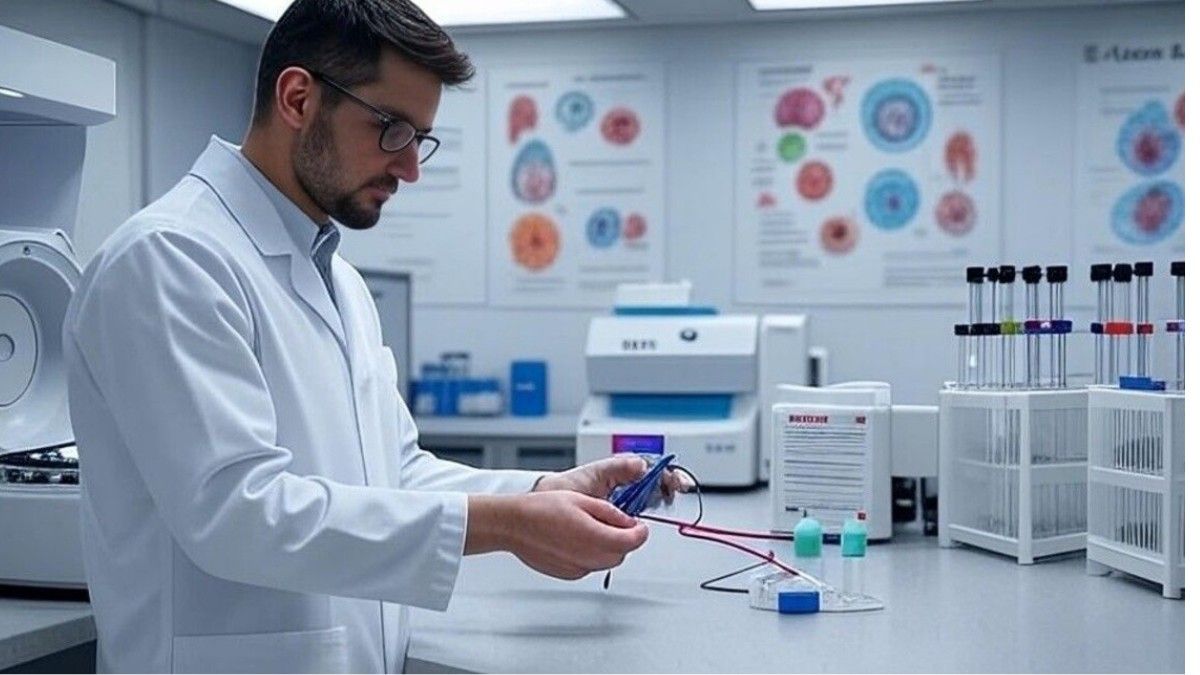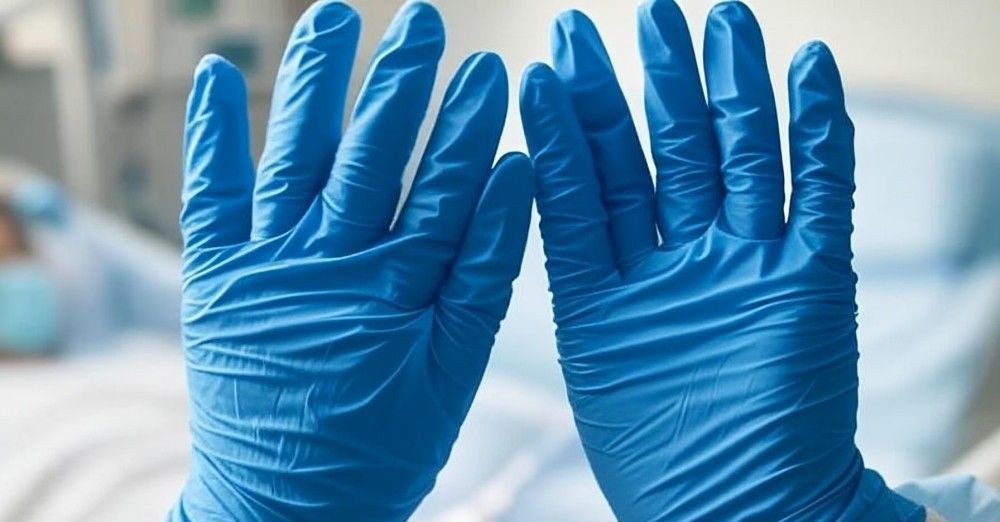
The MCHC Blood test is a crucial part of a Complete Blood Count (CBC), helping measure the amount of hemoglobin packed within your red blood cells. Hemoglobin is the oxygen-carrying protein that delivers oxygen from your lungs throughout your body and removes carbon dioxide in return.
If you have ever thought, “What is this MCHC blood test?” or why did the doctor prescribe the test, then understand everything in detail today.
What is MCHC Blood Test?
MCHC means Corpuscular Hemoglobin Concentration – In simple words, it tells the concentration of hemoglobin inside the red blood cells.
This test is usually done during routine checkup or if there is fatigue, breathing problem or weakness then the doctor suggests it. It helps determine how efficiently your blood carries oxygen to tissues and organs.
Why is MCHC test important?
This test tells whether your blood is working properly or not. If the MCHC level is low or high, then there can be anemia, genetic issue or dehydration problem.
After comparing with other CBC reports, the doctor can understand the exact issue and decide the treatment plan.
How is the test done?
The test is very simple. What happens:
- Blood Sample: Nurse or lab person takes a little blood from your arm with a needle – just a 5 minute job.
- Test in the lab: The sample is put in the machine and analyzed.
- Result: The report is received in 1-2 days, in which the value of MCHC is in g/dL (grams per deciliter).
Usually no fasting or special preparation is required, unless the doctor has prescribed some other test as well.
Understand the meaning of MCHC report
The normal range is 32 to 36 g/dL. See what each result means:
🔹 Normal (32–36 g/dL)
Everything is fine. Red blood cells are normal and working well.
🔹 Low MCHC (Below 32 g/dL)
A reduced hemoglobin level in red blood cells is known as hypochromic anemia. Reasons could be:
- Iron deficiency, which means your body doesn’t have enough iron, is a common reason for low MCHC
- Thalassemia – Genetic problem
- Chronic Disease – like kidney or cancer
- Vitamin B6 Deficiency
Symptoms:
- Excessive fatigue
- Yellow blood or cold
- Feeling of light head
- Thand pair
The doctor will then suggest further tests – like checking iron, B12, ferritin.
🔹 High MCHC (Above 36 g/dL)
Red cells have high hemoglobin. Doctors rarely see this, but it can happen.
- Hereditary Spherocytosis – Genetic problem
- Autoimmune Hemolytic Anemia – Body attacks its own blood cells
- Dehydration – Lack of water causes concentration to increase
- Lab error – Sometimes the report can be wrong
Symptoms:
- Jaundice
- Stomach pain (due to spleen)
- Fast heartbeat or fatigue
What affects MCHC?
Food and drink: Iron, B12, folate deficiency
- Medications: like chemo or immune
- Diseases: Liver, alcohol or chronic illness
- Pregnancy: Blood volume is high, MCHC seems a little low
That is why it is important to tell all the details to the doctor.
How to prepare for the test?
- Drink water: Body stays hydrated, accuracy in test comes
- Tell medicines: Tell the doctor what you are taking
- Follow instructions: If you need fasting then do it
Ways to improve MCHC
If your MCHC is abnormal, the doctor will treat it, but also follow these general tips:
🟢 For low MCHC:
- Iron-rich food: like spinach, red meat, lentils
- Combine iron-rich foods with sources of vitamin C—such as oranges or lemons—to boost iron absorption in the body
- If necessary, take supplements on doctor’s advice
- Treat any bleeding or chronic issues promptly.
🔴 For high MCHC:
- Hydration: Drink water properly
- If there is a genetic or immune issue, then follow the doctor’s plan Do it
Always consult a doctor before starting any treatment.
When to see a doctor?
- If the result is abnormal
- If there are symptoms: fatigue, dizziness, jaundice, stomach pain
You may be sent to a hematologist.
FAQs – People’s Questions
MCV shows the average size of red blood cells, MCH tells you how much hemoglobin each cell contains, and MCHC shows how concentrated that hemoglobin is within the cells.
Yes – diet, hydration, and reducing alcohol consumption helps.
In routine checkup, or if there are symptoms, the doctor writes repeatedly.
Absolutely – dehydration gives a false high report. Drink water.
Conclusion
MCHC test lets you know whether your red blood cells are working properly or not. If there are symptoms – fatigue, thinning of the body, breathing problems – then you should get the test done. The doctor will provide an appropriate treatment strategy.
Take charge of your health and stay proactive. If you did not understand something or want to share your experience, write in the comment section – I will be happy to hear it!
📌 DisclaimerThis information is for educational purposes only. Please consult a doctor regarding your reports or health. Do not diagnose or treat yourself.




